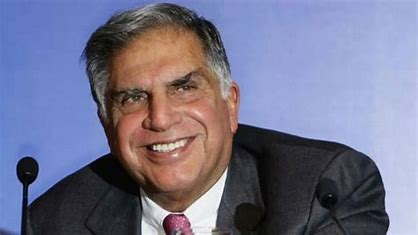Ratan Tata showed through his deeds that accumulating wealth was not what an individual would be remembered for.
On 10 October, India was awakened to the news that the Chairman Emeritus of the Tata Group, Ratan Tata, was no more. He had passed away in the Breach Candy hospital in Mumbai hours before dawn at the age of 86. NewsX aired a discussion on his passing at 9 am, hosting a panel which included an eminent physician and a financial expert among the three discussants. The physician related how the Dorab Tata Trust had paid for his medical study expenses, and how helpful Ratan Tata was to him and other young students. The financial expert spoke of how Ratan Tata had been warmly encouraging to a young startup entrepreneur the expert had brought with him to meet Tata, by then already pre-eminent as a business tycoon known for encouraging startups. Ratan Tata showed through his deeds that accumulating wealth was not what an individual would be remembered for, but by what he or she did to assist those in need of a helping hand willing to catalyse their ascent to success. The many charities set up by the Tata family ensured such a helping hand to countless people, several of whom in their turn have benefitted the world. Many remember what the Tata Trust has done for them, and some would seek to do likewise once they themselves achieved success in wealth accumulation. The small in numbers but huge in quality Parsi community in India has made a contribution to the national interest out of all proportion to their share of the population. In the case of the Tatas, the founder of the group
Increasingly in our times, success has come to be defined by profits, even if these be at the cost of the wellbeing of large numbers of people. Services get trimmed to reduce overhead, while the cost of such services goes up, making them less and less affordable. Health insurance is an example of an obsession even by some domestic brands with profits at any human cost. Those with pre-existing conditions or senior citizens find insurance premiums rise, while access to affordable healthcare falls. Why domestic insurance companies tag their names with foreign brands that only look towards making profit no matter what the human cost, is unclear. Few purchasers of health insurance buy because of the global brand, they buy because of the pulling power of the domestic brand. In the 1960s, V.S. Naipaul in his book “An Area of Darkness” called out what he termed the Craze for Foreign in India. Such an obsession with foreign brands is no longer present in most citizens, but try telling that to the owners of shopping malls. Each gets filled with the same foreign brands, with the result that prices shoot up while customers drop out. The obsession with foreign brands persists in the minds of some corporations, at the cost of their chances of going global, and at the cost of the consumer of their services. J.N. Tata was proud of India and his Indian brand has become a world leader. Others need to follow such an example, as in several cases, all such foreign brands do is add to cost in a situation where more and more citizens feel a sense of pride and confidence in our country. There was a time when tagging on to Mercedes-Benz was needed by Tata trucks, but such is not the case any longer, the Tata name is enough to assure customers of the quality of the vehicles. In the past, before a time arrived when investment from China was seen with suspicion, several foreign automotive and other manufacturing brands were bought by Chinese entities. Technology transfer from such acquisitions was used to create domestic and later international champions. In India, several companies are on the way to becoming global brands. Encouraged by the Make in India policy of the Modi government, they work towards not just assembling in India, as has been the practice, but making in India. Which is why more and more foreign brands are now coming to India or relying on India for the manufacture of components that were made in locations where cost is high, yet quality standards remain lower than what they would be in India. Getting an education abroad in business ought not to mean getting dependent on foreign brands, but in using the acquisition of such knowledge to ensure that domestic manufactures compete with the best available in the world. After all, if they check, they will find that students from India or of Indian origin are often the best in class. If they can excel there, they can excel here. During the third term of Prime Minister Narendra Modi, the regulatory and tax system is on track for change, so as to ensure that the business environment in India ranks among the best in the world. Education, housing, employment and healthcare are human rights, although ignored by several engaged in what is termed by them the promotion of human rights. Modi 2.0 worked hard at ensuring access to quality in these four desiderata to hundreds of millions, a journey scheduled for completion during the current term of Prime Minister Modi.

